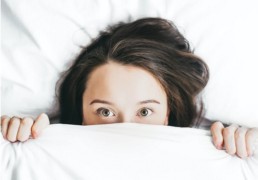
Acne is bad enough during the tumultuous teen years. When it continues into the adult years, it is simply intolerable.
More than 85 percent of the population experiences this condition, but its prevalence doesn’t reduce the impact of side effects.
Acne deals a mortal blow to self-confidence, and in many cases, it causes swelling, redness, scarring, and pain. The cost of lost productivity and dermatological care for severe cases runs into the billions, and often the available treatments simply don’t work.
Patients who have been disappointed by ineffective pharmaceutical treatments are beginning to try alternative therapies more often. They report being pleasantly surprised by the improved appearance of their skin, and they are delighted to discover that alternative therapies come with fewer side effects.
Traditional Chinese Medicine has become a preferred solution for tough acne cases, because it takes a holistic approach to healing the mind, body, and spirit. TCM focuses on Qi, the vital energy or life force that flows through all things. For full, vibrant health, Qi must be robust, powerful, and able to move freely throughout the body.
Any number of environmental or lifestyle factors can affect Qi, causing blockages, depletion, or stagnation. That, in turn, leads to imbalances in the body’s tissues, organs, and systems, which subsequently disrupts health and wellbeing.
Fortunately, there are simple, effective methods of treating blocked, stagnant, or deficient Qi, and none involve heavy-duty pharmaceuticals.
Traditional Chinese Medicine relies on a combination of nutrition, herbal remedies, lifestyle changes, and gentle movement to return the mind, body, and spirit to a healthy state.
Practitioners of Traditional Chinese Medicine typically create a customized treatment plan that addresses your unique needs. Elements that might be included in the plan range from acupuncture and acupressure to a shift in when and how you eat.
In addition, your practitioner will recommend the best Chinese herbs for acne and provide clear instructions on how to use them.
Symptoms Of Acne
When acne is considered from the perspective of Traditional Chinese Medicine, it is categorized as a condition related to excessive heat and dampness in the body.
This often occurs when Qi becomes stagnant or deficient. Excessive heat in the body causes inflammation, which leads to acne appearing on the skin. When the body holds onto fluids, they build up in the tissues, contributing to acne eruptions.
Acne can appear in a variety of ways, from tiny blackheads and whiteheads to large, puffy cysts. If you have an acne breakout, you might notice small red bumps known as papules, or you might see pustules – the small red bumps that contain fluid or pus.
Often, the area around the bumps becomes red and inflamed, and the bumps themselves can take on a dry, crusty appearance. Even when the bumps subside, they can leave behind scars, which are nearly as problematic as the acne itself.
What Are The Best Chinese Herbs For Acne?
Your practitioner of Traditional Chinese Medicine is likely to begin treatment of your acne with herbal remedies.
You can expect a combination of medicinal herbs that have been proven effective in reducing heat and dampness in the body. Some also have anti-inflammatory and anti-bacterial properties, which supports relief from acne breakouts.
Examples of the best Chinese herbs for acne include the following:
- Chi Shao (Red Peony Root) – Chi Shao comes from the peony family, and it is derived from the roots. It is thought to have an invigorating effect on the blood, and it is helpful in relieving pain and inflammation throughout the body.
- Fu Ling (Poria Mushroom) – Fu Ling is a fungus that contains precious filaments known for their ability to reduce dampness and inflammation. It is neutral in terms of warming or cooling the body, so it can be combined with herbs that have cooling effects without making the body cold.
- Huang Bo (Phellodendron Bark) – This remedy is made from cured Phellodendron Bark, and it is particularly useful in expelling heat and excess moisture from the body. It is a frequent component of herbal solutions for acne, because it generates powerful results.
- Huang Lian (Golden Thread Root) – Huang Lian has a cooling effect that is critical in treating acne caused by excessive heat. It is also useful for reducing the amount of excess moisture in the body, which tends to have a positive effect on acne.
- Mu Dan Pi (Peony Bark) – Mu Dan Pi is another bark-based remedy that cools the blood and reduces heat throughout the body. It is typically used for conditions involving inflammation and infection, which makes it helpful in treating acne.
- Yi Yi Ren (Job’s Tears Seeds) – Yi Yi Ren is best known for its ability to drain excessive moisture from the body. It also has cooling properties to bring the level of heat down, which is crucial for reducing incidents of acne.
While these remedies are available online and in shops that specialize in nutritional supplements, it’s wise to seek the advice of a specialist in Traditional Chinese Medicine to ensure you consume the best Chinese herbs for acne based on the underlying causes of your condition.
Those differ from person to person, so the amount and combination of herbs recommended for a friend may not be right for you.
Chinese Herbal Formula For Rheumatoid Acne
Getting a full evaluation from your practitioner is a critical step in your overall treatment plan. When it comes to acne, this is particularly important, because not all acne is created equal.
In some cases, a collection of red bumps can look like the acne you experienced as a teenager, but in fact, it is a sign of something much more serious. For example, some patients with rheumatoid arthritis develop rheumatoid acne, which is a painful skin condition that appears to impact some rheumatoid arthritis patients.
Because it isn’t quite clear why some rheumatoid arthritis patients develop a skin condition, western medicine sometimes struggles with resolving it. There is a possibility that the autoimmune disorder causes inflammation in the skin, but there is also a theory that rheumatoid acne is a side effect of certain rheumatoid arthritis drugs.
If you are experiencing this skin condition, you may wish to consider an alternative solution for treating your rheumatoid arthritis.
Practitioners of Traditional Chinese Medicine typically recommend the herbal formula Bi-Qi, which the Chinese Food and Drug Administration has studied and recognized as an effective rheumatoid arthritis therapy.
Speak with your physician and your TCM specialist before adding herbal remedies to your rheumatoid arthritis and rheumatoid acne treatment plan.
Homeopathic Treatment For Acne
Homeopathy works under the theory that “like cures like”, and many people choose natural homeopathic remedies as an alternative to heavy-duty pharmaceuticals.
There are a variety of homeopathic options for the treatment of acne, and they are quite specific depending on the location and type of acne you are experiencing.
- Antimonium Tartaricum – Typically recommended for acne that shows up as large, tender, puffy pustules.
- Calendula Gel – A topical preparation that reduces the likelihood of infection secondary to acne breakouts.
- Pulsatilla – Primarily used for acne that appears associated with hormonal changes.
- Silica/Silicea – Effective in cases where acne breakouts are large swollen bumps beneath the skin.
- Sulphur Iodatum – Best for acne that occurs cyclically on the forehead and/or back.
Bear in mind that while homeopathic remedies are usually made from natural ingredients, they are still quite powerful. They may have side effects, and they can impact the effectiveness of other medications you are taking.
Consult with your physician before beginning any homeopathic remedy. When you do begin, ensure that you purchase your product from a reputable brand, as homeopathic remedies are not regulated by the Food and Drug Administration.
Natural Supplements For Acne
There are many pharmaceutical options for treating acne, but they aren’t always the best choice for your body. Drugs can carry serious side effects, and in some cases, those side effects are worse than the acne itself.
Natural supplements for acne have the advantage of far fewer side effects. Better still, the best Chinese herbs for acne have been in use for thousands of years, demonstrating a long history of effectiveness.
What’s Next?
About the author

